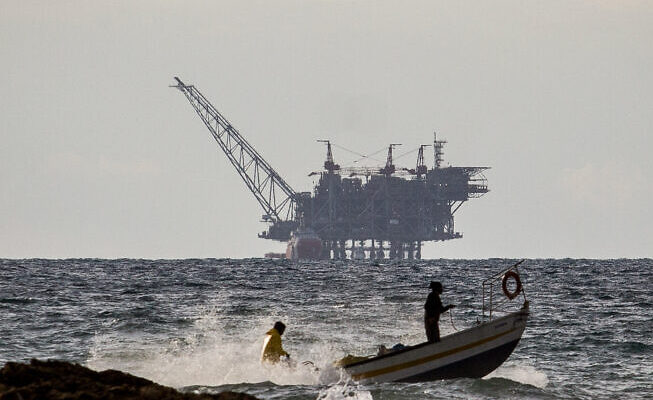Beirut says Hezbollah’s drone flight was “unacceptable,” and exposed Lebanon to “unnecessary risks.”
By Associated Press
Lebanon’s caretaker prime minister on Monday criticized the militant group Hezbollah for sending three unmanned aircraft over an Israeli gas installation last week, saying it was an unnecessarily risky action.
Najib Mikati’s comment came two days after Hezbollah launched three drones over the Karish gas field in the Mediterranean Sea.
The Israeli military said on Saturday said that it shot down the three drones before Hezbollah issued a statement saying they were unarmed and were sent on a reconnaissance mission.
“The mission was accomplished and the message was received,” Hezbollah said.
Lebanon claims the Karish gas field is disputed territory under ongoing maritime border negotiations, whereas Israel says it lies within its internationally recognized economic waters.
“Lebanon believes that any actions outside the state’s framework and diplomatic context while negotiations are taking place is unacceptable and exposes it to unnecessary risks,” Foreign Minister Abdallah Bouhabib said, citing Mikati’s statement.
Israel and the Iran-backed Hezbollah are bitter enemies that fought a monthlong war in the summer of 2006. Israel considers the group its most serious immediate threat, estimating it has some 150,000 rockets and missiles aimed at Israel.
The incident in the Karish gas field took place soon after U.S. mediator Amos Hochstein recently visited Lebanese and Israeli officials, as talks were advancing.
Mikati on Saturday told reporters that Lebanon had received “encouraging information” regarding the border dispute, but refused to comment until after he receives a “written official response to the suggestions by the Lebanese side.”
Negotiations between Lebanon and Israel to determine their maritime borders commenced in October 2020, when the two sides held indirect U.S.-mediated talks in southern Lebanon. Since taking over the mediation from late 2021, Hochstein has resorted to shuttle diplomacy with visits to both Beirut and Jerusalem.
The two countries, which have been officially at war since Israel’s creation in 1948, both claim some 860 square kilometers (330 square miles) of the Mediterranean Sea. Lebanon hopes to exploit offshore gas reserves as it grapples with the worst economic crisis in its modern history.




